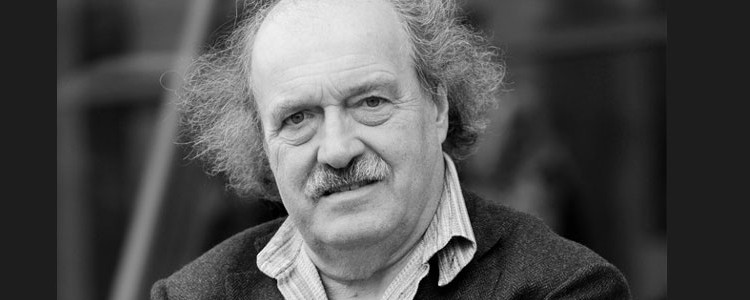RIP Urs Widmer
 For there are a few stories that have been told for ever and — hardly altered at all — have been passed on through the millennia because something about them — something beyond all trends — gets to people so powerfully, they cannot get them out of their heads, and so the stories have to be told, over and over. These stories are called myths, they are something approximating cultrual fossils, whose roots are not known, even if it can be assumed that they represent memory traces of something that happened — not in this way, of course, but not completely differently either — in a concrete place at a concrete point in time.
For there are a few stories that have been told for ever and — hardly altered at all — have been passed on through the millennia because something about them — something beyond all trends — gets to people so powerfully, they cannot get them out of their heads, and so the stories have to be told, over and over. These stories are called myths, they are something approximating cultrual fossils, whose roots are not known, even if it can be assumed that they represent memory traces of something that happened — not in this way, of course, but not completely differently either — in a concrete place at a concrete point in time.
“On Oedipus the King and Sophocles”, Lecture 6, On Life, Death, and This and That of the Rest
Urs Widmer (May 21, 1938 – April 2, 2014) was a Swiss novelist, playwright, an essayist and a short story writer. In 2007 he delivered the Lectures on Poetics Series at the University of Franklin VI. ( Previous speakers have included Ingeborg Bachmann, Theodor Adorno and Heinrich Boll.) On Life, Death, and This and That of the Rest: The Frankfurt Lectures on Poetics consists of six lectures translated by Donal McLaughlin. It is a slim book but these lectures are meant to be read over and over again. It is incredibly packed with insights that make you pause and reflect. At a time when publishing is rapidly becoming a writer’s space and there is an information load with articles readily available on the Internet pontificating about the craft of writing, it is important to hear, read and listen to thinkers like Urs Widmer. Here is another extract ( p.29) from his second lecture, “On the suffering of writers”:
The writer who suffers creates his works because without these confessions he’d implode — the gods have shown him mercy in permitting him this possibility; and also because a positive reception helps to integrate him into the community. Suffering, famously, isolates people and the — perhaps even enthusiastic — acceptance of his black confessions allows the writer to see that these black confessions cannot be entirely foreign to the readers. For the writer arrives every day anew at the banal insight that being wounded really does hurt. In order not to be swamped by the pain, he is forced to create distance, distance between himself and the material, and distance between himself and the reader. No writing — I know this experience is my equivalent of ceterum censeo —ever just suddenly emerges, straight out of seething emotions — of necessity — transform into a concentrated observation of the material and, in the end, can barely be felt by the writer. As if a sheet of glass were between them and him. The writing even of the most terrible thing, especially of the most terrible thing, happens in an oddly cold fashion. Were we to feel exactly what we write or want to write, we wouldn’t be able to do it. The pain would tear us apart and we wouldn’t write another word. Yes, it is even the case that the feeling experienced while writing is often the diametrical opposite of that in the text. I describe a painful death and the feeling while writing is not of mourning but joy. Triumph. In Walter Muschg’s words: “The most wonderful sheen on a masterpiece is the pain that no longer pains the author. A perfect piece of work must no longer bear a single trace of the suffering.”
It was very sad that Urs Widmer passed away on 2 April 2014. RIP.
Urs Widmer On Life, Death, and This and That of the Rest: The Frankfurt Lectures on Poetics English translation by Seagull Books, Calcutta, 2013. Hb. pp. 120 $21 / £ 13.50 / Rs 425

